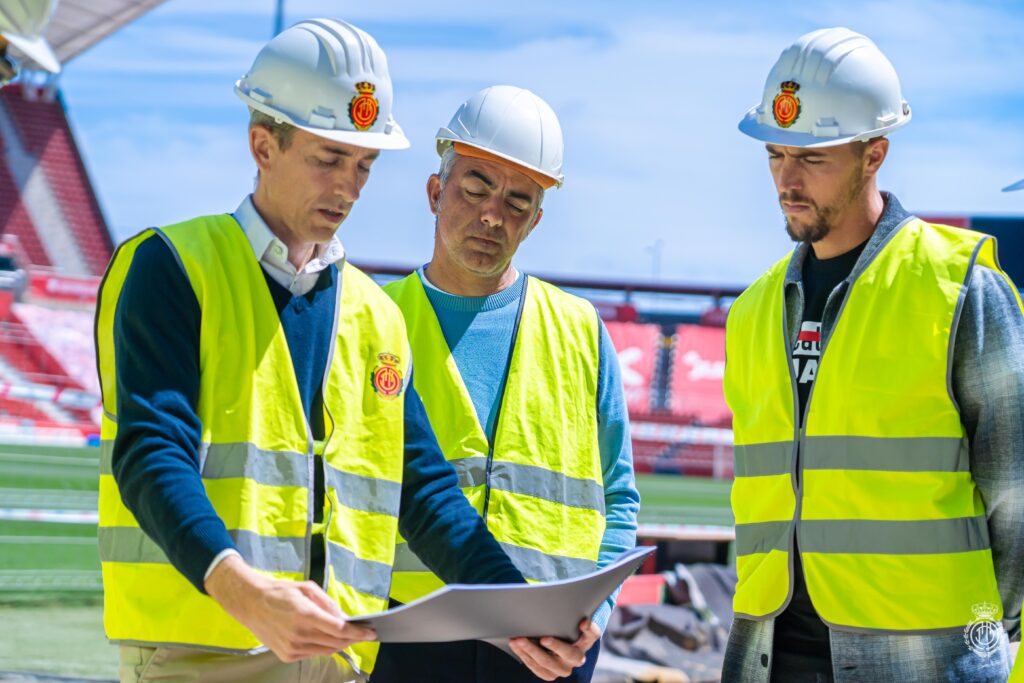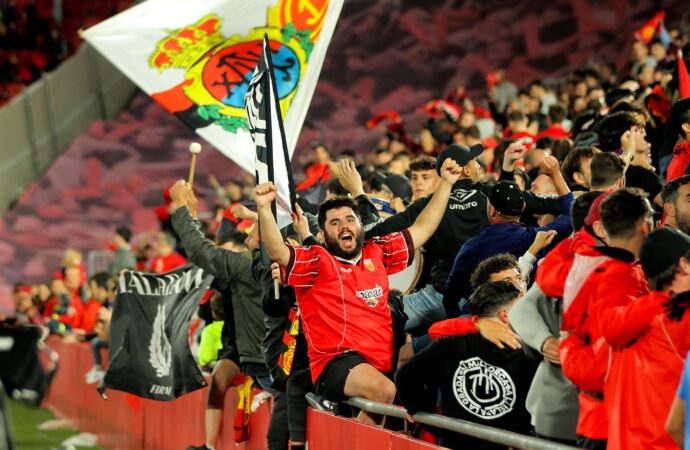Alfonso Díaz explains how an investment in the club’s stadium can help to mitigate the island’s environmental risks
How long can you preserve paradise? It’s a question that has long been pondered by the politicians and policy makers of the Balearic Islands, the Mediterranean archipelago that serves as a haven for millions of tourists every year.
Worsening environmental conditions pose a significant risk to the islands’ status as a little corner of heaven in Europe, with rising sea levels threatening to engulf popular beaches, single-use plastics polluting areas of natural beauty and climate change increasing the intensity and regularity of unbearable heat.
In response to this, the Balearic government set the ambition to become the world’s first circular tourist destination, with a focus on the reduction of resource use, transitioning away from fossil fuels, producing more food locally and delivering more sustainable mobility solutions to residents and tourists.
RCD Mallorca, the most successful football club to hail from the region, wants to be part of the solution and, according to its chief executive, Alfonso Díaz, the club can be a key vehicle both in terms of infrastructure support and raising the profile of major environmental issues and the solutions.
“We live on an island, so we have to be very proactive in trying to preserve our natural environment,” Díaz says. “Regulations from the government make it easier to develop a culture around sustainability and our local authorities are one of the most positive in Spain in terms of sustainability regulations. We want to work with them to be an example for other companies and show that we can have a great influence.”
At the heart of these plans are a big renovation project at the club’s Visit Mallorca Estadi, its home since 1999. Accelerated by a near-€2 billion investment in LaLiga (the league in which RCD Mallorca plays) by private equity firm CVC, infrastructure improvements in the stadium will go some way to supporting the environmental goals of the island of Mallorca and the wider Balearic community.
With limited reserves and more frequent droughts, water management has been a big issue for Mallorca for many years. Climate change is making this worse; in the summer of 2019, water reserves fell by 4%. As well as attempting to instil a more sustainable approach to water demand management, local authorities are searching for solutions to improve the water supply through rainwater collection.
To reduce its burden on the local water supply, the stadium is being installed with a rainwater collection and storage system on the roof of its new east grandstand that will go some way to satisfying its pitch irrigation needs.
Reducing its reliance on the use of single-use plastic, both on matchdays and at the club’s training centre also aligns with local environmental priorities. A single-use plastics ban (that includes cups, plates, trays, cutlery and straws, but not bottles) was established by the local government. And nonprofit, Save the Med Foundation, works with companies to phase out these products through its Balearics Without Plastic Program.
Footprint, a plant-based material science company that partnered with the club in 2021, has helped to remove much of the single-use plastic from the stadium by providing fans with biodegradable food and beverage containers that cut emissions down by 60% as well as waste.

“We’re looking at zero plastic with Footprint and we’re looking for collaborations with different sponsors and partners who are ready to work with us on making this change,” Díaz (above left) explains.
He adds that while leadership commitment is important, the main goal is to spread the message through to employees, fans and other key stakeholders. Partnerships like the tie-up with Footprint are key to this, Díaz stresses.
“Football is the sport with the biggest reach and we have to take advantage of this,” he says. “We have the opportunity to make significant changes. We’re not talking about pieces of paper and written commitments – this stadium is a reality, you can touch it with your hands.”
The Boost LaLiga project, created with the CVC investment money, has been developed to foster innovation, internationalisation and sustainability within Spain’s top clubs, with much of the money going towards big infrastructure projects to reduce operational impact on the environment and improve efficiency.
During the first stage of the Visit Mallorca Estadi renovation, 232 LED lights replaced inefficient old units that were lighting the pitch, reducing energy consumption by half.
The next stage of the renovation, says Díaz, will include the integration of a large photovoltaic array to cover much of the stadium’s energy usage. With the region still dependent on fossil-fuel derived energy, which is contributing to the risks it is facing around climate change, coupled with the fact that Mallorca has, on average, 300 days of sunshine per year, the transition to cleaner energy is a pressing priority.
“We have an important role,” Díaz says. “In general, building a culture takes time. The renovation of the stadium is a big change and will set up a new culture around being environmentally friendly and sustainable. This can help our region a lot.”
Opt into our weekly newsletter for exclusive content focused on sustainability strategy, communication and leadership for sport’s ecosystem.










Leave a Comment
Your email address will not be published. Required fields are marked with *